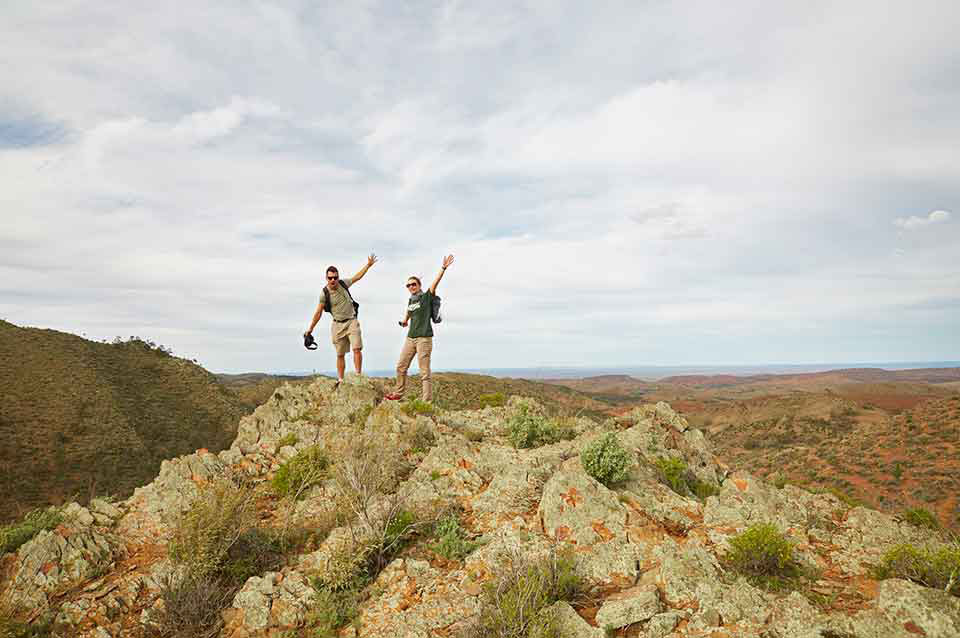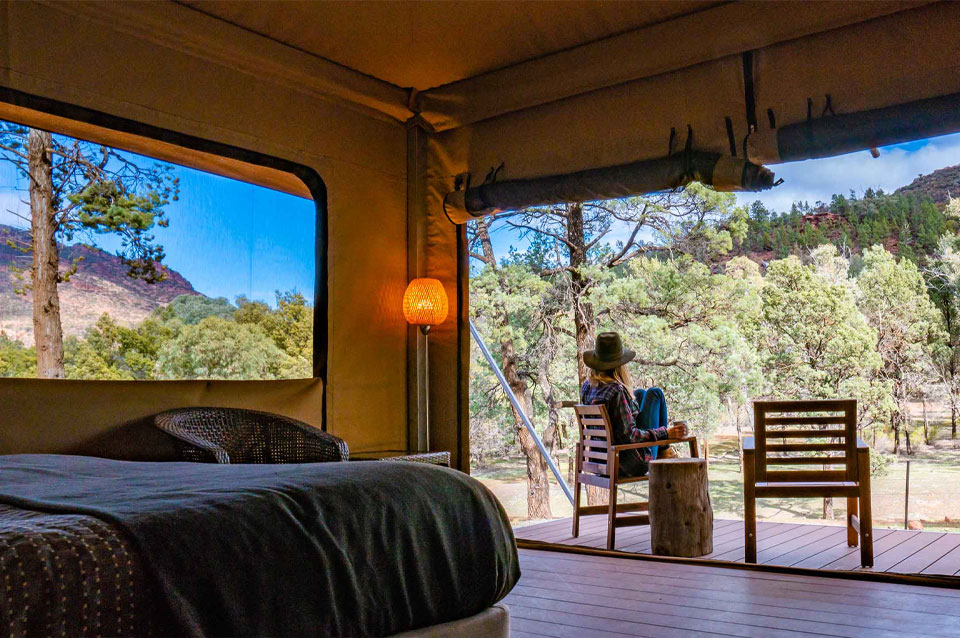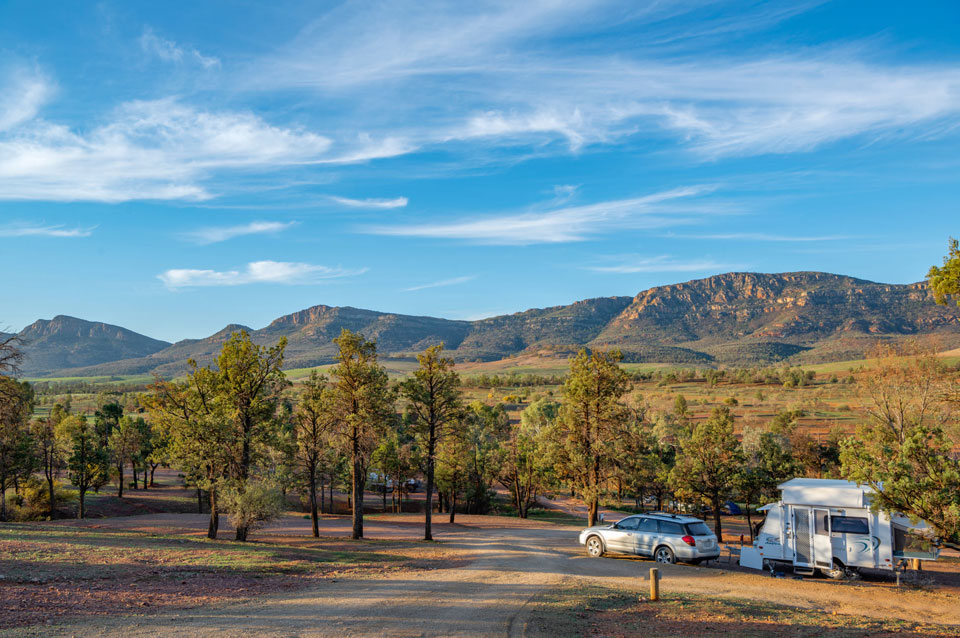06 Nov 2023
Words
John Miller Informer 108
The Green Convergence
From consumers to regulators to tech to financial institutions to government, the paths to a more sustainable accommodation industry are converging from all sides. Operators take note.
Informer last visited the topic of sustainable tourism and travel four years ago in Issue #94. We thought it timely to revisit the subject given the seismic changes that have drastically moved the dial on the sustainability front for our sector since then.
Meaningful action on the environment is now being exerted on accommodation operators from all directions. From bottom up, it’s consumers. From the top down, it’s consumer watchdogs. On the corporate front, it’s banks and other capital providers, as well as ESG reporting requirements. From government, it’s in the form of grants and other investment. With tech, it’s Google, Booking.com and other online travel agencies.
These powerful influences are converging. The environmental action expected of accommodation operators has moved far beyond asking their guests to reuse towels or turn out lights. There is now impetus on operators, large and small, by way of carrot-and-stick incentives from several different quarters, to meet environmental best practice.
Arguably, the most influential change of all is being exerted by tech. In 2013, TripAdvisor, the world’s largest travel guidance platform, blazed the trail when it launched its GreenLeaders program that allowed hotels to spruik their environmentally friendly practices to travellers. But it was only in October 2021 that tech colossus Google came to the sustainable tourism party.
Now, Google’s hotel search similarly allows operators to promote their sustainability certifications on their search results page. Google users can also click on a hotel’s “eco-certification” badge to drill down on specifics about a hotel’s sustainability efforts, including action on the Big Three: water, waste and energy.
More importantly, Google now includes “eco-certified” as a filter option. This allows environmentally conscious travellers to weed out uncertified operators. When a hotel is labelled “eco-certified” on Google, it means it has reported a certification from a third-party certifying agency that meets global standards. In November 2021, the world’s largest online travel agency, Booking.com, followed suit when it launched a similar “Travel Sustainable” filter and badge.
Tech’s message to accommodation operators is clear: if you want effective visibility on our platforms you need to be a good environmental citizen. Tech is saying, Go green if you want to be seen, or at least be better seen.
“The corner was turned when Google and Booking.com decided the travel consumer was more interested in sustainability than just about anything else,” says Brad Cox, a sustainability travel and tourism veteran of 25 years, and now Director of Communications for Green Globe (see sidebar).


“Post pandemic there has been a real rush to sustainability globally. In 2020, Google released a report to say one of the most searched topics was ‘sustainability.’ It seems the pandemic drove the world to think more about sustainability as a lifestyle option. The online travel agencies then started to take it more seriously. You can’t underestimate Google’s global footprint and Booking.com once they started saying sustainability is now an important selection criteria. In the past, selection criteria was availability, dates, location, etcetera. Now, eco-certification has shot right up the list.”
“It has been said that ‘sustainability is the new digital,’” says Elissa Keenan, CEO of Ecotourism Australia (see sidebar). “Remember when you had to buy your own Wi-Fi at a hotel? It’s standard now. That’s what sustainability has become, moving from a ‘nice to have’ to a ‘must have.’ It’s not a bolt on, not an afterthought, but must be an industry standard for tourism businesses.”
Influential change on the accommodation sector has come from the ground up through consumer behaviour. An overwhelming number of the travelling public are increasingly saying they want to travel more sustainably. Booking.com’s Sustainable Travel Report 2023 found 76 per cent of travellers want to travel more sustainably. Expedia’s earlier Sustainable Travel Study 2022 put the number even higher at 90 per cent.
“What we do know is the global demand has absolutely changed,” says Keenan. “If the last couple of years has given us anything it’s that the way people are travelling and making their choices has shifted. They’re far more committed to the principles of sustainability, which is not just about leaving a place as good as it was, it’s about improving and protecting it for the future.”
The travelling public is also increasingly shunning destinations that do not measure up to environmental best practice. Expedia’s 2022 study found seven in 10 consumers avoided a travel destination due to scepticism that the commitment to sustainable practices was real.
The ability of operators to greenwash their accommodation businesses is also becoming increasingly difficult. In March 2023, the Australian Competition and Consumer Commission (ACCC) put businesses on notice that it is cracking down on greenwashing.
The consumer watchdog conducted a sweep of 247 businesses that had made claims like “environmentally friendly,” “green”, or “sustainable” regarding their products and services. The ACCC’s report found 57 per cent of those businesses had made dubious environmental claims.
Going forward, the ACCC said it would now be requiring businesses to substantiate their claims byway of third-party certification, transparent supply chain information or reliable scientific reports. The ACCC’s message to businesses is clear: Greenwashing will no longer wash.
How then does an accommodation operator certify that its environmental efforts meet the appropriate standard? Indeed, what is the standard?
The international standard bearer for sustainable travel and tourism is the Global Sustainable Tourism Council (GSTC). The GSTC does not certify accommodation businesses directly, rather it establishes and manages global sustainable standards, known as the GSTC Criteria
There are two ways accommodation operators can satisfy the criteria. The first is to develop their own proprietary environmental performance measurement platform and have the GSTC sign off on it. In 2019, Hilton became the first major hotel group in the world to have the GSTC recognise its inhouse system LightStay that tracks energy, carbon, water and waste data, as well as social impact metrics. Similarly, in November 2022, the GSTC recognised the inhouse standard of The Ascott Limited, which owns a controlling share in Quest Apartment Hotels, Australia’s leading apartment hotel brand.


The second, and far more widespread, way for accommodation operators to achieve certification is via a third-party certifier.
The good news for local operators is that Australia is exceptionally well served by first-rate certification bodies. The GSTC has recognized two homegrown organisations, EarthCheck and Ecotourism Australia, both of which are headquartered in Brisbane. Both organisations boast impressively long track records in environmental certification having been active in this space for several decades. The two organisations are competitors but friendly. A key difference is that EarthCheck is active in more than 70 countries worldwide (see our feature “The Jolly Green Giant”), while Ecotourism Australia operates in Australia and the Pacific. Other GSTC-recognised certifiers based outside Australia, such as the Los Angeles-based Green Globe, arealso active in Australia and across 80 countries.
“Third-party certifiers sit between the consumer, the investor and the property/business,” says Cox. “The investor — the hotel owner, shareholders, etcetera — wants to know the business they’re putting money into is operating in the most environmentally friendly way and is socially engaged. The consumer wants to know that too. Both want to make sure that for the contributions they’re making that the business is doing the right thing by being sustainably managed. If you don’t have third party certification you can basically say what you want. That’s the reason why we exist.”
As part of ISO quality assurance, certification groups such as EarthCheck, Ecotourism Australia and Green Globe do not conduct certification themselves. Rather, it is undertaken by outside, arms-length auditors. Auditing is an exacting process, often taking months for the initial audit. Sustainability certification has a shelf life of two or more years (it varies from certifier to certifier) and is renewed on follow-up audits.
Operators take heart. For those who haven’t yet embarked on certification because they feel they won’t measure up, help is out there. Ecotourism Australia, for instance, has its Strive for Sustainability Scorecard, which is not a certification but a benchmarking tool to help operators identify what they are doing well and opportunities for improvement.
“It’s a way for operators to dip their toe in the water and say, ‘I want to understand what I should be thinking about,’” says Keenan. “The power of that is that it’s trying to demystify the issue of sustainability. Because we get lots of, ‘Is it about carbon measurement?’, ‘What calculator should I use?’, ‘I don’t know where to start.’ So, it’s very much a way to support operators to become more aware but also give them some practical guidance on what they can do to improve over time.”
“Certification is often a barrier to operators because they think, ‘Well I’m not as good as that,’ or, ‘I haven’t invested as much,’ or, ‘I’m not doing those groundbreaking programs.’ So, the Strive for Sustainability Scorecard is a nice pathway. It allows operators to see a snapshot of the global standard, but they can also see that it’s a first step. They can get a view of what they are doing well and areas they need to improve. If they’re not ready for certification, that’s OK, it’s about starting on the sustainability journey.”
Similarly, EarthCheck launched a micro-credentialling course in sustainability in September 2022. EarthCheck’s online short courses break learning about sustainability into manageable chunks over a series of sessions that take 45-90 minutes each. This micro-learning can be used as a precursor to certification or simply as a primer for accommodation business owners who want to know more about operating more sustainably.
What’s clear is that environmental certification is not only here to stay but rapidly evolving and sophisticating.
“Booking.com is now starting to segregate the third-party certified from those which are second party and those who do it themselves,” says Cox. “Out of the 250,000 properties on their books only around 5,000 were third-party certified worldwide. But the number of business that intend to be certified, that are working towards certification are probably in the hundreds of thousands.”
“It’s about accepting that travellers are looking for authentic and credible certification,” says Keenan. “Whether it’s mandated or not, there’s a definitive shift in this space.
We’d much rather operators opt into this voluntarily and have their credentials validated so travellers can be assured they are selecting a business committed to sustainable practices.
But those pressures are going to continue. Not only to meet visitor expectations but the need for everyone operating in the visitor economy to protect our tourism product.” END

Green Finance
Environment ratings schemes for commercial buildings are nothing new, nor is sustainable finance, but has only come to the fore in the hotel sector in recent years.
It was only in 2019, when digital bank BBVA issued the world’s first hotel green bond. In 2020, Blackrock, the world’s biggest asset owner and manager with over US$9 trillion in assets under management, including shareholdings in major hotel groups such as Hilton, Park Hotels & Resorts and Red Lion Hotels, joined investment pact Climate Action 100+, an investor-led initiative to ensure the world’s largest corporate greenhouse gas emitters take necessary action on climate change.
Admittedly late to the sustainability cause, and fiercely criticised for it, Blackrock now manages more than $2 trillion in sustainable investments.
Hotel groups and owners, developers, financial institutions and investors are now part of an energy efficiency ecosystem that comprises the lifecycle of a hotel from inception through to operation.
For new hotel builds of scale it will difficult if not impossible to get the backing of major financial institutions and fund managers unless the proposed development achieves a pass from independent building certifiers such as the National Australian Built Environment Rating System (NABERS), the Infrastructure Sustainability Council (ISC) or EarthCheck.
In June 2022, NABERS, which is administered by the NSW Government, launched its Sustainable Finance Criteria to assist banks, investors, non-bank lenders and building owners to structure sustainable finance transactions that result in real and measurable environmental impacts.
EarthCheck has similarly aligned its standards with the principles of green, social and sustainability linked loans.

Green Globe
Founded in 1993, Los Angeles-headquartered Green Globe has only recently started to make a foray into the Australian accommodation market as a sustainability certifier. In April 2023, the GSTC-recognised company certified its first Australian entity when it signed off on the Royal International Convention Centre at the Brisbane Showgrounds.
Dorsett Hotel Gold Coast, Dorsett Melbourne, Sofitel Melbourne on Collins, and Sofitel Sydney Darling Harbour are all in the process of Green Globe certification.
Globally, Green Globe has certified more than 550 entities across 80 countries. For the last 12 years, Green Globe has been the exclusive provider of certifications for Mövenpick, which has been owned by Accor since 2018, as well as Club Med Villages.
In June 2023, Green Globe inked an agreement with Accor globally to be the preferred certifier of the hotel giant’s luxury brands, including Mövenpick, Fairmont, Sofitel and Raffles.
“We position ourselves for businesses who are considering sustainability as a long-term proposition,” says Brad Cox, Director of Communications for Green Globe. “We have many companies who apply to join, and we introduce them to what they have to do. We have more organisations drop out at that point than go through. And we’re fine with that because we’re not in the business of just giving a label to stick on the door. We would consider that greenwashing.”
“We’re interested in long-term commitment to sustainability. We want sustainability to be at the core of the businesses we work with, as part of their management plan, businesses that have capacity to include sustainability as part of their day-to-day operations.

Ecotourism Australia
Founded in 1991, Ecotourism Australia is Australia’s peak body for eco and sustainable tourism providers and a membership organisation created by industry for industry.
Ecotourism Australia traditionally concentrated on businesses with a nature focus.
For example, a caravan park in a nature reserve or on a beach would be a prime candidate for its flagship certification, ECO Certified Tourism, which it has been offering for the last 25 years. One such ECO Certified business is caravan park Townsville Eco Resort (see our feature “Green Acres”).
In the city hotel space, Ecotourism Australia is a relative newcomer. In November 2022, it launched its GSTC-recognised Sustainable Tourism Certification for businesses operating in a non-nature-based setting. For example, hotels and motels in urban centres.
“The Sustainable Tourism Certification was a lightbulb moment for us,” says Elissa Keenan, CEO of Ecotourism Australia. “We’ve been doing what we’ve been doing for more than two decades, supporting all these wonderful nature-based operators.
But we’ve also had people in non-nature-based settings knocking on our door asking, ‘Why don’t you do something for us?’ So, we created the Sustainable Tourism Certification. Having the standard recognised by the GSTC opens up the pathway for any operator, whether nature-based or not, who wants to start their sustainability journey with us.”
In a major endorsement of its new certification, Ecotourism Australia signed a partnership arrangement with Accor Pacific in March 2023 to be the preferred certifier for Accor properties across Australia and the Pacific.
“Accor has been very active in this space for a long time with their Planet 21 program,” says Keenan. “For them to say, we really value Ecotourism Australia’s program and want third-party verification to tell us we’re doing the right thing, as a certifying body, we couldn’t ask for more.”
Unique to Ecotourism Australia is its Green Travel Guide. The guide is an online resource that industry and travellers alike can use to know who is eco-certified.
Think Lonely Planet but web based and purely for sustainability. Users can download an app that allows them to use the guide offline if they’re travelling in areas with no internet.
“The majority of travellers have been telling us they want to travel sustainably. But they’ve also been telling us they don’t know where to look for the right product,” says Keenan. “Our Green Travel Guide aims to plug that knowledge gap.”
